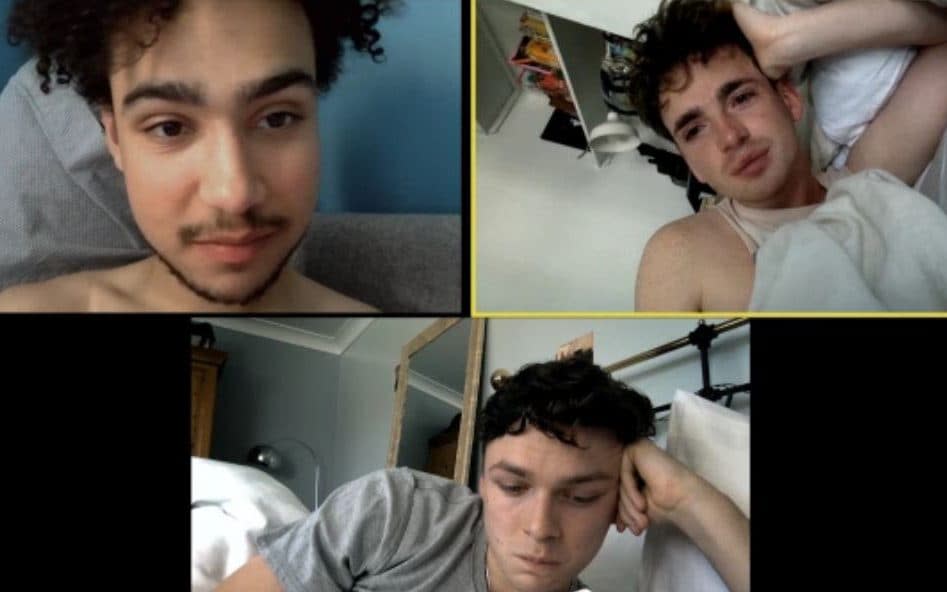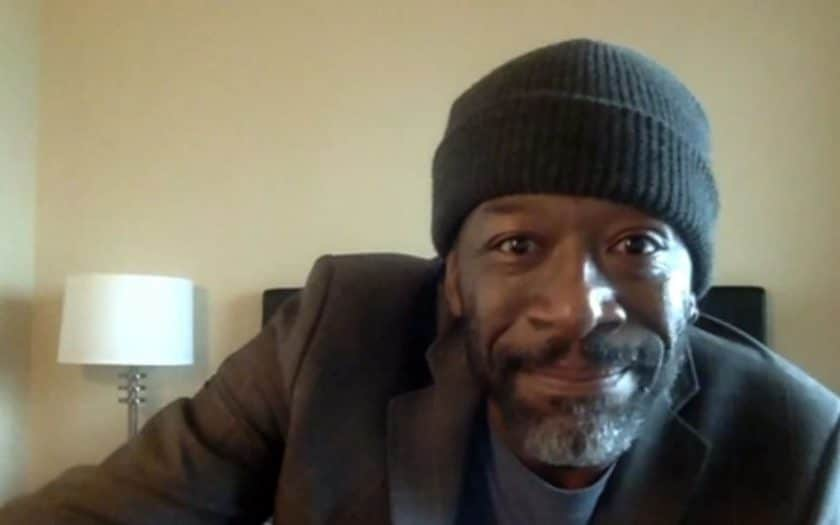Unprecedented, episode 1 review: a valid effort, but are Zoom calls the best we can do?

Fourteen new scripts from a bunch of our most interesting and promising playwrights. A coach-load of actors, including big household names (Sue Johnston, Meera Syal, James Norton). One of our leading touring companies – Headlong – working with the Bafta-winning outfit Century Films, supported by BBC Arts. A hivemind attempt to get the measure of our curtailed “state of play”, written and produced under lockdown…
No one could accuse the rapid response BBC Four series Unprecedented of being Unambitious or sounding Uninteresting. But on the strength of the first of four half-hour episodes my underwhelmed response was that it may prove less than the sum of its parts.
I hate to sound a negative note – the theatre community, battling the horror of crippling playhouse closures, is admirably funnelling its creative juices into another medium, not only in this project but in many other online ventures.
And yet the deployment here of the go-to communication tool of the moment – video conferencing (most notably Zoom, albeit the material has also been sourced via visually better-grade computer kit) – strikes me as an overly confining way of contemplating our hemmed-in lives. In a recent interview, outgoing Headlong director Jeremy Herrin said the company’s own use of Zoom had inspired the commission of “a load of plays set in a video-conference setting because there’s so much subtext and so much dialogue”.
While the logistics and costs of getting state of the art cameras into multiple domestic residences would have challenged even top-end TV companies, the decision to Zoom in on different lives in such a uniform way feels as much of a bind as a bid for coherence. It puts emphasis on conversational interaction, when one obvious observation about the pandemic is the way it has forced a great swathe of the population to be left to their own psychological devices. The adoption of one approach results in form leading content not vice versa.

James Graham, long the toast of theatreland and fast becoming TV’s golden boy following the success of Brexit: The Uncivil War and Quiz (fans should note there’s an NT at Home screening of his superb This House on Thursday), provides the opening salvo with Viral. Three male teenagers who’ve seen their awaited summer of A Levels and the associated school-leaver prom hit the dust, chat away in their bedrooms, one of their number (Archie Madekwe) suggesting that they mark the prom-date by making a would-be viral video.
Graham has seized on the way social media platforms like TikTok have facilitated the (fame-making) transmission of quirky distractions during lockdown. But beyond showing he’s up to speed with day-to-Groundhog-day reference points (“I’ve just been Joe Wicksing”) and nicely catching the restless, anxious mood, he doesn’t bring much of a fresh slant.
The viral theme feels underloaded, the allusion to adolescent desire is cursory and the tentative climax in which Laurie Kynaston’s teary-eyed Tyler leads a croon-along to We’ll Meet Again as a recorded farewell for his dying grandmother – well, it seems rather tossed-off. As a document of the fact that school-leavers have struggled this year, it’s valid, but does it do anything more valuable? And it leaves the question hanging as to whether it might have been better to go straight to teenagers themselves to record and reflect on their isolation.
A similar feeling of a halfway house attends Penny by Charlene James, addressing another issue – the plight of the homeless, ostensibly “rescued” and put up in hotels but cut off from their usual surroundings and associates. In the case of Lennie James’s garrulous dosser that means his beloved pooch (we’re wise to the canine nature of his addressee some time before the big reveal of a rather nonplussed and undemonstrative looking correspondent).
James gives a blistering performance of walled-in agitation – and some of the lines land hard (“If one more person talks to me about social distancing!... don’t they know… people have been distancing themselves from me socially for years?”), but it’s hard to credit a homeless man being so conveniently and articulately au fait with a video call. Still, perhaps it’s the gist that counts.
And in that spirit the final offering of this tranche – Going Forward – best does the trick. John Donnelly’s simple, darkly satirical company Zoom-call sees a mercilessly demanding team leader, all impatient, veneer-thin bonhomie, terminate the connection (and by implication the employment) of those attendees not delivering the right good-news about the procurement of vital machines (“We seem to have lost Martin!”). As we move out of lockdown and into its grim economic consequences, some of these playlets will look like old news; others might well start to speak more loudly to the dread-filled moment.

